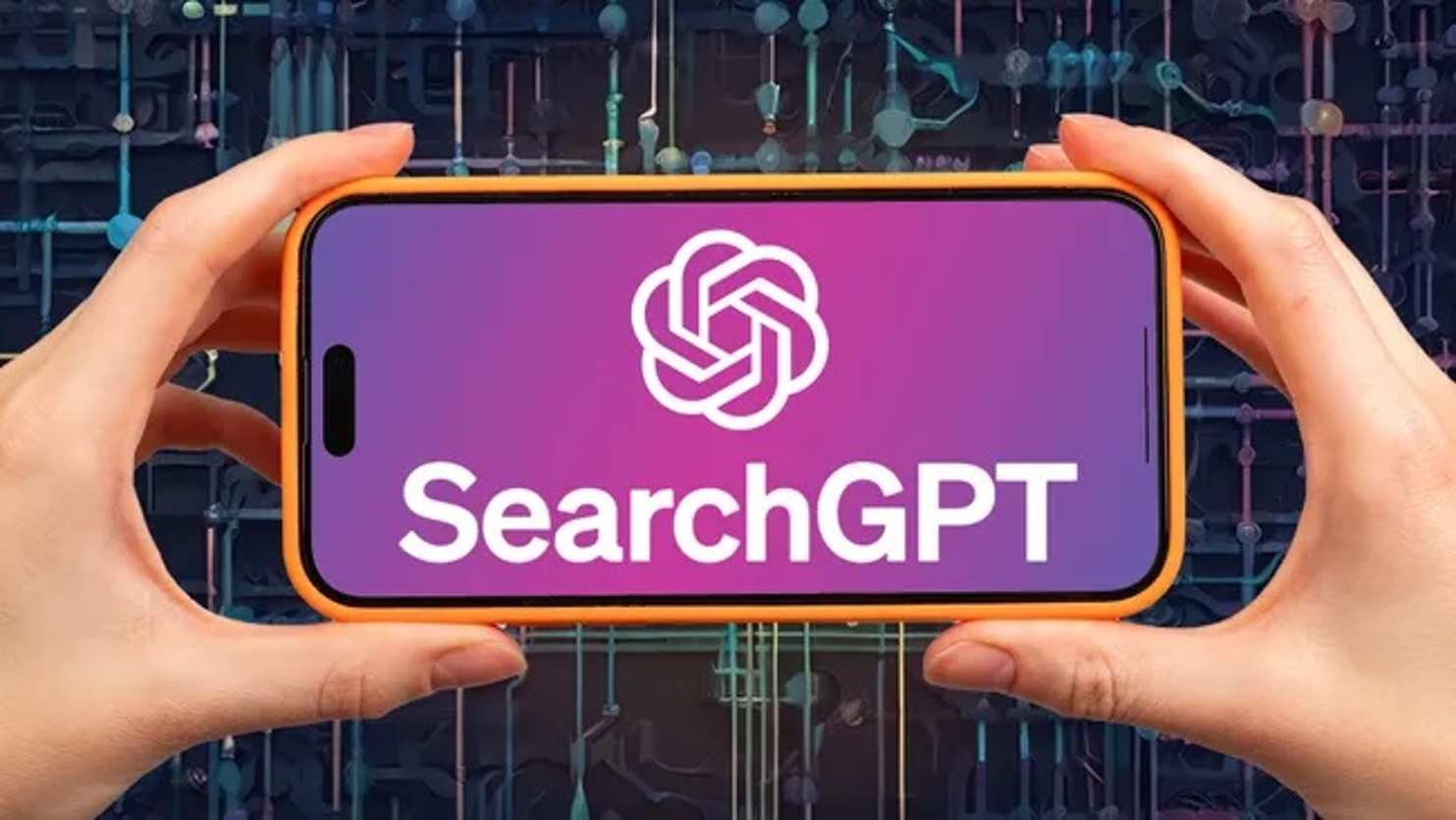In a high-stakes announcement that could send shockwaves through the tech industry, OpenAI has revealed it’s testing of SearchGPT—a pioneering search engine leveraging generative artificial intelligence to challenge Google’s long-held dominance.
The strategic debut, initially rolled out to a select group of users and publishers, is poised to evolve into a comprehensive feature within ChatGPT rather than standing as a separate entity.
SearchGPT, described as a prototype in its nascent stage, integrates OpenAI’s cutting-edge AI models with real-time internet search capabilities.
It promises not only conversational responses but also up-to-date information with “clear links to relevant sources,” setting the stage for a revolutionary shift in how users interact with search engines.
As OpenAI positions itself against entrenched giants like Google—and, notably, Bing, backed by its significant investor Microsoft—the competition is heating up.
The new AI-driven search feature represents a crucial juncture in the ongoing arms race among tech titans to dominate the search landscape.
Yet, the innovation arrives amid growing scrutiny over the ethical and legal implications of AI in search. OpenAI’s attempt to redefine search through AI is not without controversy.
The company faces mounting legal challenges from news outlets and media organizations accusing it of copyright infringement.
Publishers claim OpenAI unlawfully used their content to train its models, an allegation the company disputes by asserting its practices fall under “fair use.”
The contentious issue of content use underscores the broader backlash against AI-generated search features.
Google’s recent rollout of AI Overviews, which distill information from search results without necessitating clicks through to original sources, has already sparked criticism from publishers worried about lost traffic and revenue.
Similarly, Perplexity, another AI-powered search engine, faces legal threats for producing search results that closely mirror content from news articles.
In response to these concerns, OpenAI has pledged to collaborate with publishers, offering them control over how their content appears in SearchGPT results and ensuring that only trusted sources are promoted.
Statements from high-profile media executives, including the CEOs of The Atlantic and News Corp, suggest that some view this AI-enabled search innovation as a promising advance in internet technology.
As OpenAI’s SearchGPT gears up to challenge the status quo, it does so against a backdrop of legal turbulence for Google.
The tech giant awaits a critical court decision in a landmark antitrust lawsuit filed by the U.S. Department of Justice, which accuses Google of illegally monopolising the search industry through lucrative deals with device makers like Apple and Samsung.
Currently, SearchGPT is a prototype that OpenAI is testing. The AI company has created a waitlist for those curious about seeing the search engine in action.
Based on examples provided by OpenAI, SearchGPT is a large textbox that asks searchers, “What are you looking for?”
Compared to Google’s Search results, the GPT version attempts to summarise and organise the information it finds. Links are still available in an accessible sidebar.
Alphabet, the company behind the renowned Google Search engine, has experienced a notable drop in its stock value due to concerns that OpenAI might capture a significant portion of the market.
OpenAI, known for developing ChatGPT—the pioneering AI language model—introduced this technology well before Google launched Gemini or Meta released Llama.
Despite Google’s ongoing AI projects and various concepts being developed for its search engines, none have yet reached fruition due to significant issues that still need to be addressed.
OpenAI’s SearchGPT Demo Results Aren’t Helpful
The trend of hallucinations showing up in public AI demos continues. As noted by a couple of reporters already, OpenAI’s demo of its new SearchGPT engine shows results that are mostly either wrong or not helpful.
In a prerecorded demonstration video accompanying the announcement, a mock user types music festivals in boone north carolina in august into the SearchGPT interface.
The tool then pulls up a list of festivals that it states are taking place in Boone this August, the first being An Appalachian Summer Festival, which according to the tool is hosting a series of arts events from July 29 to August 16 of this year.
Someone in Boone hoping to buy tickets to one of those concerts, however, would run into trouble. In fact, the festival started on June 29 and will have its final concert on July 27.
Instead, July 29–August 16 are the dates for which the festival’s box office will be officially closed. (I confirmed these dates with the festival’s box office.)
Can We Trust OpenAI’s SearchGPT?
A Northeastern University artificial intelligence and communications researcher says OpenAI’s approach with SearchGPT is a step in the right direction since it is working with publishers and not using their work without permission and attribution, but it still likely will have the same deep foundational issues all large language model technologies have.
“There’s still no actual intelligence, just context-free pattern matching based on language, so there’s still a pretty good chance that some of what gets spit out is going to be misleading or outright nonsense,” says Michael Ann DeVito, a Northeastern professor of computer sciences and communication studies.
“I’d also note that training on news content, while probably better than training just on public internet data, still has its own embedded bias problems.”
Many users have already been using ChatGPT as a pseudo-search tool due its speed and conversational nature. The chatbot, however, is notorious for “hallucinating” and sharing false information.
DeVito says these technologies are coming out at a time when media literacy among the general public has taken a nosedive over the past 10 years, making it more challenging for people to decipher a good source of information from a bad one.







